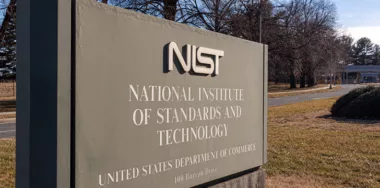| Getting your Trinity Audio player ready... |
Binance came under regulatory fire on three continents in the space of a single weekend, another sign that the enforcement walls are rapidly closing in on the troubled cryptocurrency exchange.
On Friday, Japan’s Financial Services Agency (FSA) issued a terse public warning that Binance wasn’t registered to do business in Japan. The FSA fired a similar warning shot across Binance’s bow in 2018, after which the exchange’s CEO Changpeng ‘CZ’ Zhao claimed the company would work with regulators to obtain a Japanese license.
Notably, CZ has said nothing this time around, possibly because he knows the FSA now recognizes that any promise of future compliance should be taken for what it was—a naked attempt to kick the regulatory can down the road, maintaining Binance’s access to Japanese digital currency customers while ignoring its regulatory responsibilities.
Also Friday, Binance informed its customers in Canada’s largest province Ontario that they were no longer welcome to trade via the platform. The notice stated that Ontario had “become a restricted jurisdiction” and thus Binance “can no longer continue to service Ontario-based users.” Customers based in Ontario were advised to “take immediate measures to close out all active positions by December 31, 2021.”
On Saturday, the U.K.’s Financial Conduct Authority (FCA) issued a consumer warning to the effect that Binance Markets Ltd “is not permitted to undertake any regulated activity in the UK.” The FCA noted that firms under the Binance Group umbrella “appear to be offering UK customers a range of products and services via a website, Binance.com.”
The FCA’s concerns are reportedly centered on Binance’s lack of adherence to anything resembling standard anti-money laundering protocols. As in Japan, Binance previously made loud proclamations of its intentions to receive the FCA’s stamp of approval but ultimately withdrew its application when it became clear that getting accepted would mean there were actual rules that had to be followed.
While Binance initially assured its U.K. customers that all was well, the Financial Times reported Monday that Binance had lost access to Pay.UK’s Faster Payments service, putting a significant crimp in its U.K. customers’ ability to move sterling on or off the exchange. Binance claimed the service had been “suspended for maintenance” while Faster Payments is reportedly declining comment on the subject.
You know they’re lying if their lips are moving
Customers in all jurisdictions where Binance is the subject of enforcement actions likely aren’t overly concerned, as the exchange embodies a corporate philosophy that rules are for fools and made to be broken.
Despite Binance’s claim to Ontario becoming a ‘restricted jurisdiction’ as of June 26, one Ontario resident told CoinGeek that they were able to open a new account with Binance as of Monday (June 28). This customer didn’t attempt to conduct any trades with the site, so it’s possible such an action might have proved unworkable, but the fact that the site’s software isn’t automatically rejecting Ontario addresses could prove problematic if the Ontario Securities Commission catches wind.
This apparent regulatory dodge recalls Binance’s infamous ‘Tai Chi’ strategy aimed at undercutting U.S. efforts to detect illicit financial activity. That strategy also called for the establishment of a supposedly arms-length U.S. offshoot (Binance.US) as a compliant decoy to distract U.S. authorities from less compliant activities conducted on Binance.com, including those involving U.S. customers illegally accessing the site via virtual private networks (VPNs).
When Forbes first broke the Tai Chi bombshell, Binance expressed public outrage, going as far as to file a defamation suit against the media outlet and the two writers who authored the article. Binance voluntarily dismissed the suit a few months later without explanation, although the most obvious theory would be that Binance didn’t relish the idea of airing its dirty corporate laundry in a U.S. federal court.
For whom the bell tolls
The Tai Chi strategy included steps intended to “insulate Binance from U.S. enforcement” by ensuring its key execs never set foot on U.S. soil. CZ has publicly acknowledged—often with a triumphant air—that Binance lacks a formal headquarters, sort of like how the late John McAfee conducted his operations from a constantly moving boat that took great pains to remain in international waters.
But all boats eventually have to dock somewhere, and McAfee found himself arrested in Spain last year at the request of U.S. authorities on charges of tax evasion. Additional charges related to initial coin offering pump-and-dump schemes were filed after his arrest.
The U.S. currently has extradition treaties with over 100 jurisdictions and extradites between 400-700 individuals to U.S. soil each year. With a growing number of governments taking an increasingly forceful stance against crypto-based criminality, CZ will soon find the act of clearing customs in many countries more nerve-wracking than usual.
The existence of a CZ arrest warrant won’t be confirmed until the moment of his detention, but considering Binance’s willingness to dismiss regulatory warnings as idle threats, it stands to reason that prosecutors have extra incentive to make an example out of anyone who treats their authority with such disdain.
The odds of a U.S. warrant surfacing are good, particularly given the Racketeer Influenced and Corrupt Organizations (RICO) Act, which allows U.S. authorities extreme latitude in pursuing the kingpins of organizations conducting undesired activities on U.S. turf (physical or digital).
It doesn’t matter if Binance isn’t actively promoting Binance.com to U.S. customers. As the crackdown on U.S.-facing online gambling sites amply demonstrated, all a U.S. agent needs to build a case against an unauthorized site is the ability to log on and conduct a transaction. In those gaming cases, a number of elements contributed to the U.S. authorities’ willingness to prosecute, including using a U.S.-registered dot-com domain, transacting in U.S. dollars (even if only denominating contracts in greenbacks), as well as having staff and/or third-parties such as consultants and suppliers that call the U.S. home.
Of course, having any U.S. customers will certainly doom Binance in the eyes of local law enforcement. And with America’s penchant for projecting its legal authority on an extraterritorial basis, even U.S. citizens based overseas having any dealings with Binance could serve as a red flag to this easily antagonized bull.
Binance’s Tai Chi strategy reportedly earned its title through the martial art’s philosophy of yielding to attacks and using opponents’ strength against them. But engaging with one’s opponent requires one to see the blow coming, and Binance’s success appears to have made CZ sufficiently arrogant not to see the haymaker aimed at his chin.
Follow CoinGeek’s Crypto Crime Cartel series, which delves into the stream of groups—from BitMEX to Binance, Bitcoin.com, Blockstream, ShapeShift, Coinbase, Ripple and
Ethereum—who have co-opted the digital asset revolution and turned the industry into a minefield for naïve (and even experienced) players in the market.
New to blockchain? Check out CoinGeek’s Blockchain for Beginners section, the ultimate resource guide to learn more about blockchain technology.








